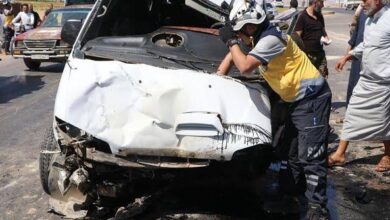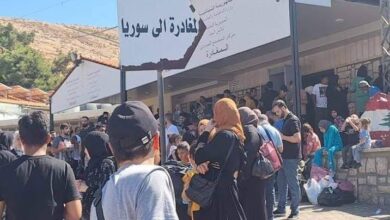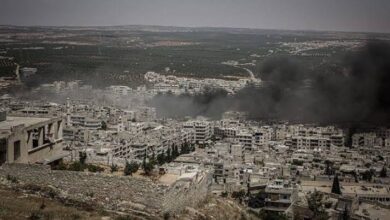
Humanitarian cases in northern Syria… the role of organizations and the media in managing and responding to them
After the increase in population density in the liberated areas in northwestern Syria, and the displacement of more than a million and a half Syrian citizens due to the attacks of the Assad regime and Russia on the Idlib countryside, which created social ills, including poverty and beggary, institutions working in the humanitarian field in northern Syria rushed to establish offices of “case management” “, With the aim of responding to the largest possible number of humanitarian cases in the region.
The Amna Association works in the areas of Idlib and Aleppo countryside in the field of children, relief and camps, and the association allocates mobile teams to detect humanitarian cases in addition to allowing communication on its e-mail and official Facebook page, in order to respond to humanitarian cases.
Mr. Mohammad Al-Sayed Ali, Director of the Media Office and Director of the Case Department at Amna Association, says to Fresh Online: “The humanitarian situation is assessed by a mobile team affiliated with the center in the region, as the team consists of a doctor and nurses. later. As for social cases and other problems, the case is managed by specialized teams that assess the size of the case, then arrange the available cases, so the priority is to respond to the more in need and the most.
The role of the media in responding to humanitarian situations
The media is considered the most effective means of conveying the image of the real suffering that the Syrian people have suffered since the outbreak of the Syrian revolution in 2011, as the groups of the Syrian society in the liberated areas have been suffering from social and health problems for more than nine years.
Muhammad Al-Sayed Ali told Fresh Online: “Media institutions contribute mainly in various areas of life, especially in the areas of relief, development, case management and response file, as it conveys a realistic picture of the suffering that camp residents suffer from to donor organizations abroad, which leads to the entry of humanitarian aid. Later on to the camps in the Syrian territories.”
The role of the media revolves around managing humanitarian cases, by presenting cases and publishing documentation files for their needs that are not available in the liberated areas, and thus delivering them to the Turkish side or other parties abroad that may secure the necessary treatment or operation for humanitarian cases at home.
The cooperation of humanitarian organizations on creating a mechanism for managing cases inside Syria
According to Ali, the humanitarian organizations, foundations and volunteer teams working in the humanitarian field inside Syria seek to form a nucleus aimed primarily at responding to humanitarian and medical cases, and aims to convey the true picture of the suffering experienced by the Syrian people inside the liberated areas.
Humanitarian organizations also seek to inform the Turkish side with information about difficult pathological cases at the border crossings that need to receive the necessary treatment in Turkish hospitals, due to the inability of hospitals in the liberated areas to provide treatment for some sick cases, or to conduct precise operations whose techniques may not be available in the liberated areas .
Turkey limits its acceptance of medical cases to emergency cases and cancer patients, while those with incurable diseases find no way of treatment except through appeals and support campaigns that spread on social media to make their voices heard.
According to the “REACH” initiative, issued on October 20, on the humanitarian needs in northwestern Syria, the majority of the health problems that the population suffers from are chronic diseases, with a rate of 79%, followed by severe diseases that affect children under the age of five by 64. %.
The medical facilities in northern Syria do not have enough equipment to treat only four types of cancer and tumors, while they lack the ability to carry out “major” surgeries, in the words of the head of the Primary Health Care Department in the Idlib Health Directorate.
There is in the “expensive” private facilities most of what public medical facilities lack, according to media outlets, as they indicated that some patients tend to seek aid for treatment in private facilities, even if treatment is available in public hospitals.
Prepared by: Mohammad Al-Mousa




